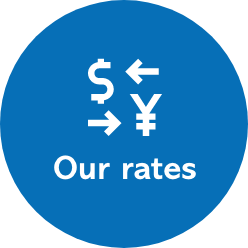Buying a property abroad
There are many reasons why people buy real estate abroad. For some, it's the flexibility of a home away from home in a country they visit frequently for business or leisure. Others may be so charmed by the beauty and culture of a destination that they might consider living their retirement years there. Or they may be interested to snap up investment property in a hot or weak real estate market. No matter what your intention for purchasing property abroad, you need to know what the process entails for the country that has grabbed your attention.
1. Estimate costs of living
How much can you expect to pay for food, transportation and healthcare in the foreign country? Does it have a private or public healthcare system? If the costs of living abroad are higher than in your home country, you may want to think twice about whether buying foreign property makes good financial sense. This is regardless of whether you plan to live in that country for a few months a year or move abroad at some point.
2. Be clear on foreign property ownership laws
Property ownership laws and procedures for non-nationals differ from country to country. Many countries do not allow you to buy land or have special rules on buying or leasing land. For example, to own land in Thailand, you must first form a corporation that is at least 51% owned by a Thai national. Apartments in Dubai are sold as leasehold properties. This means you own the apartment, building or villa for a fixed term but not the land on which it stands, and pay an annual ground rent. Mexico allows you to buy property through a bank trust, with the Mexican bank holding the title to the property. Consult a real estate attorney to understand the foreign ownership laws and procedures applicable to the country in question.
3. Get familiar with your financing options
It's easier than ever before to finance international real estate but as it's also a matter of your hard-earned money, avoid making hasty decisions. Here are a few things to ponder over:
- Does the country have high mortgage interest rates, a larger down payment and/or shorter terms for non-residents?
- Do lenders require you to buy mortgage life insurance to cover your mortgage?
- Are the loan applications of non-residents generally treated more stringently than that of citizens?
Other than non-resident bank financing, you can consider four other ways to purchase foreign property: a home equity line of credit (HELOC) from your bank, developer financing, seller financing and retirement accounts.
- You can pay in cash with a HELOC. The interest rate on a HELOC from your bank is likely to be much lower than the mortgage interest rates from banks in the foreign country. As cash buyers tend to be looked upon favourably, you may be in a good negotiating position with the seller.
- In seller financing, the seller funds a part of the purchase price. Seller financing terms are shorter, typically five years with a balloon payment at the end of the term. You'll receive the deed to the property after you've paid your loan.
- Property developers offer financing but only when they begin to sell. Once sales take off, you're unlikely to get attractive financing terms.
- You can borrow from your retirement plan and pay it back to yourself. First evaluate how using your retirement funds to purchase a home or other property abroad might affect your retirement lifestyle. Go through the rules of taking money out of your retirement assets. For example, you may be allowed to borrow a certain percentage of your vested account balance and not any more.
Organizing financing is one of the more complex aspects of purchasing foreign property. Make sure you do your research and engage professional help as needed.
These recommendations can help make your property ownership journey smooth:
- Negotiate the purchase price after factoring in all associated costs, including insurance, taxes, legal fee, brokerage, maintenance costs and so on.
- Work with a local real estate broker to navigate the process in a stress-free manner.
- Engage a local lawyer to conduct legal checks, such as whether there are encumbrances or pending litigation against the property, among other aspects of legal due diligence.
4. Interested in hosting your foreign home on Airbnb? Get familiar with the rules.
On average, Airbnb hosts make $924 a month. First find out whether Airbnb is legal in the particular city. Go through the regulations and tax rules of running an Airbnb. Many cities, including Berlin and San Francisco, impose restrictions on renting a foreign home if it isn’t the owner’s primary residence. You’re also required to register and get a permit before you can list your property. Once you’re an Airbnb host, track its upkeep remotely by hiring an Airbnb property manager for guest communication, guest screening, check-in and check-out, adjusting pricing based on competition, and keeping your place in good condition.
Tips on increasing rental rates:
- Maintain clean, hygienic, mould-free rooms
- Ensure that doors and windows are sturdy and lock securely
- Pay special attention to the condition of the kitchen and bathrooms
- Add an artistic touch to the living room, bedroom and gathering spaces
- Write a compelling description for your property, highlighting not just the home but also the area
- (safe, close to the best city attractions, close to the subway and so on)
- Track rental rates on vacation rental and real estate websites
- Get feedback from renters/vacationers on improving your home
5. Understand your tax obligations
Your tax situation will change when you buy international real estate. Check the property tax payments you'll need to make annually or semi-annually. Engage a property management firm to handle tenant screening, rent collection, and repair and maintenance. Identify a way to make scheduled maintenance payments, such as via an automatic recurring debit from your bank account or pay digitally upon receiving the firm’s invoice. Pick a secure digital wallet and maintain records of the transaction on Google Drive or another cloud service.
Learn about the income tax requirements that apply when you live abroad for an extended period of time. If you’re a resident of the UK and want to live abroad, you will have to pay tax on your UK income so long as you visit the country for more than 183 days in a tax year. If you spend fewer days in the UK, you will essentially become a non-resident and won’t have to pay taxes on the money you make in the country. Consult a tax attorney for the right information on filing your tax returns.
Also seek independent legal advice on the tax you might need to pay on rental income earned abroad as well as the deductions you can claim on utilities and maintenance for the foreign property. Finally, get a clear idea of the taxes to pay at the time of buying and selling the property. You may be able to avoid capital gains tax on the property if you declare the foreign home to be your primary residence. Here again, advice from a tax attorney specializing in international tax law will be invaluable.



